Introduction
Thriving as a software engineer means more than mastering frameworks and algorithms—career development is shaped just as much by your habits, your curiosity, and how you engage with your organization. Drawing from years of industry experience, this guide outlines practical ways to build your skills, expand your influence, and navigate the natural ups and downs of a developer's journey. Whether you are just starting out, a few years in, or aiming for senior roles, these strategies can help you move forward.
My Professional Path: An Overview
The early stages of my career spanned internships and work-study roles, eventually leading to full-time software development and a transition into senior-level responsibilities. Teams evolved from small, specialized groups into broader feature-oriented squads, mirroring organizational shifts. Each stage brought new lessons about adaptation and the value of changing environments.

Practices I Wish I Had Embraced Sooner
1. Maintain a Regular Work Journal
Keeping a log of your completed tasks, achievements, and learnings can be transformative. Whether you update it daily or weekly, such a journal supports:
- Performance reviews: Recalling your accomplishments and impact with concrete examples when negotiating raises or promotions.
- Resume building: Having a record of meaningful contributions, key metrics, and responsibilities for when job hunting or updating your CV.
A simple document—perhaps bulleted notes in a digital file—suffices. When pressed to reconstruct years' worth of work, you'll be grateful for this habit.
2. Step Outside Your Familiar Territory
Remaining within your usual responsibilities, collaborating with the same colleagues, and solving similar problems may be comfortable, but growth often requires discomfort. Challenges stimulate learning. Once you're skilled in an area, aim to:
- Mentor others, enabling them to step confidently into this space, multiplying efficiency team-wide.
- Tackle projects or technologies that are new to you.
- Document and share your knowledge, whether via internal guides, blog posts, or documentation.
- Volunteer for cross-team undertakings or help improve tooling and workflows.
- Engage in company-hosted events or collaborative guilds.
- Assist with hiring or onboarding processes.
Don’t wait for formal reviews to try something new; discuss your interests and development goals with your manager, especially when stepping into the unknown.
3. Explore Other Teams and Projects
Learning about efforts beyond your immediate team helps you grasp the bigger picture. Even if your product relies only loosely on other components, periodically viewing demos, reading documentation, or attending other teams' knowledge shares can:
- Increase your ability to diagnose cross-system issues.
- Provide new perspectives and ideas for your own work.
- Highlight opportunities for collaboration.
Consider summarizing your findings and visualizing system relationships to aid others.

4. Volunteer for On-Call Responsibilities (If Feasible)
Assuming on-call duties—responding to service disruptions as they occur—may not suit every company or individual. Where a healthy culture and fair compensation support it, on-call experience offers valuable insights:
- Deepening your understanding of critical systems and their failure modes.
- Fostering empathy for colleagues who troubleshoot under pressure.
- Building a sense of ownership over your organization's products.
Even short-term on-call rotations can be eye-opening and professionally rewarding, provided the environment is supportive.
5. Move Between Teams
Switching teams, when done thoughtfully, can:
- Expose you to new domains, processes, and technologies.
- Enable knowledge transfer between groups.
- Reignite your passion if current duties feel unfulfilling.
Make changes for positive reasons and try to spend at least a year in each team for a rounded perspective. If issues are urgent, discuss them with management before making abrupt moves.
6. Write and Share Your Knowledge
Whether through documentation, internal posts, or public articles, writing is a key skill for software engineers. Benefits include:
- Sharpening your communication abilities through regular practice.
- Consolidating your understanding by explaining concepts and solutions.
- Building your professional reputation and connecting with peers.
Do not focus on instant popularity; instead, see writing as ongoing personal and communal development.
Decisions I Would Approach Differently
1. Introduce Changes with Caution and Inclusivity
When proposing new tools, paradigms, or major code overhauls, consider not only technical merit but also team well-being and maintainability. Reflect on these points:
- Are you introducing complexity others are not ready for?
- How well does the team understand and feel ownership of the change?
- What happens when key contributors are unavailable?
Iterative adoption, hands-on practice, and transparent decision-making can prevent unintentional knowledge silos and reduce disruption during team transitions.
2. Manage Emotions During Team Discussions
Disagreements are natural, but heated exchanges in group settings often undermine cohesion and mutual respect. Instead:
- Pause and address conflicts privately as soon as possible after the meeting.
- Use one-on-one dialogue or consult with managers to seek resolution.
- Foster a culture of open yet respectful communication.
Self-control preserves team trust and facilitates productive collaboration. Immediate private discussion can defuse tensions before they escalate.
3. Periodically Test the Job Market
If you stay with an organization for many years without looking elsewhere, you might lose touch with current opportunity and compensation trends. Interviewing occasionally, even if you’re not eager to leave, helps you:
- Understand your professional value and adjust your salary expectations.
- Practice handling different interview formats.
- Negotiate effectively for raises or role changes.
Don't wait until you're unhappy to see what's out there—staying market-aware is part of self-advocacy.
Summary Table: Practical Career Development Tactics
| Advice | Why It Matters | Best Practices |
|---|---|---|
| Work Journal | Prepares for reviews, resume, and personal tracking | Update weekly; use bulleted docs |
| Leave Comfort Zone | Stimulates learning, spreads knowledge | Mentor, explore new projects, share documentation |
| Explore Other Teams | Broader tech insight, potential for collaboration | Attend demos, read docs, talk to new colleagues |
| On-Call Duty | Deepens systems knowledge, fosters ownership | Join if culture and compensation are healthy |
| Team Changes | Exposure to new environments and skills | Stay at least a year per team; communicate motivations |
| Write Regularly | Improves communication, builds personal brand | Start small; share internally or publicly |
| Cautious Change Introduction | Prevents silos, knowledge gaps | Train, document, and get consensus |
| Manage Emotions | Keeps teams united, builds trust | Take private action, talk early |
| Test Job Market | Keeps you informed about compensation & trends | Interview occasionally, network often |
Final Thoughts and Further Growth
Much of career advancement in software engineering is rooted in habits, self-awareness, and building relationships. Technical wizardry is only half the story—the rest comes down to curiosity, humility, and open communication. Stay connected with past colleagues who inspired you, and share your journeys openly with others. Networks formed organically can introduce opportunities, mentorship, and new perspectives for years to come. Keep learning, keep sharing, and keep improving—not only for your current role, but for the developer you want to be in the future.